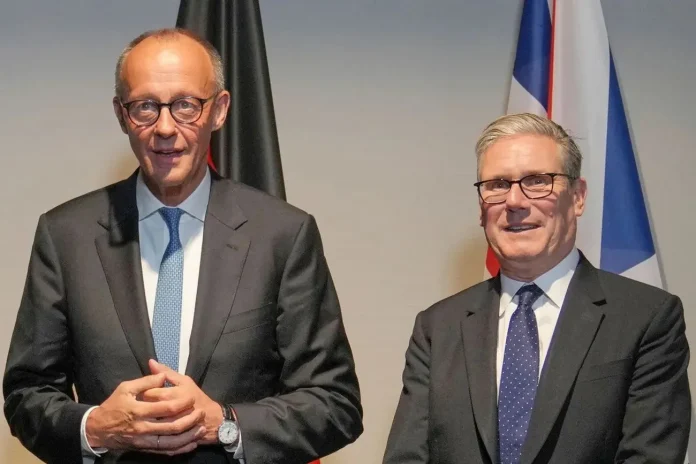On Thursday, July 17, the UK Prime Minister Kir Starmer and German Chancellor Friedrich Merz will sign a bilateral defense agreement, which provides close cooperation in the field of security, defense, trade, transport and migration policy. About it reports Bloomberg with reference to sources in the government of Germany.
A key element of the document will be the obligation of both countries to provide mutual support in the event of an armed attack. According to German officials, such an agreement is a response to Russia's threats and more doubts about the reliability of US security guarantees within NATO. At the same time, according to both parties, this agreement is not an alternative to Article 5 of the North Atlantic Treaty, which guarantees the collective defense of the Alliance Member States.
Particular weight in the new agreement is given to the joint development of the Deep Precision Strike system, a long -range missile system with a radius of more than 2000 km. Its creation will be the first step towards the modernization of European defense infrastructure and provides significant investments in the military-industrial sectors of both countries.
Despite the fact that the topic of nuclear weapons is not mentioned in the document, the German side is considering cooperation with London - one of two nuclear powers in Europe - as critically important in view of future security challenges.
In addition to the defense component, the Agreement provides cooperation in the field of trade, transport and combating illegal migration - in particular to mitigate the consequences of Brexit. The signing will also announce more than £ 200 million of new commercial investments, which will create about 600 jobs in the United Kingdom. Initiatives include the expansion of Stark's defense company outside Germany, investing 50 million pounds in Britain by the AI-company Cognigy GmbH, as well as Siemens Energy AG plans to create 200 new jobs.
The signing ceremony can also have a political implication: both the older and the merckery now face internal calls. For an old man who has recently been criticized for dramatic changes in the political course, the foreign policy arena has become a way to strengthen its government's position. In turn, Merz tries to maintain unity in conditions of increasing voltage within the CDU/CSS and SDPN coalition.


